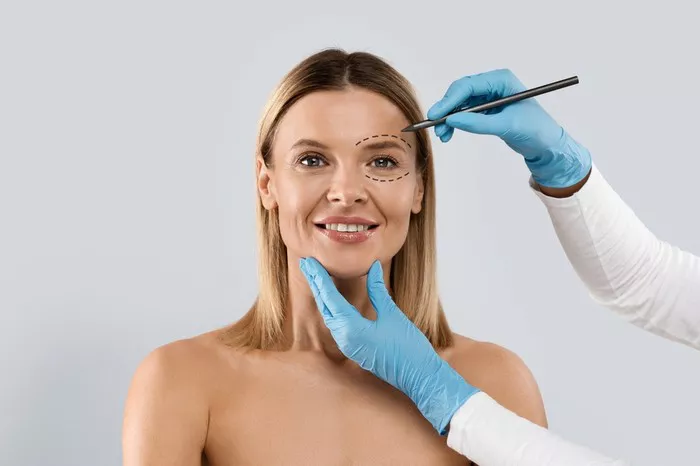A plastic surgeon has become an Internet sensation after performing stunning facial transformations on women through a unique ‘Picasso technique’. The technique uses a variety of non-surgical “fine-tuning” methods to change the shape of the face, and the women he transforms are unrecognisable.
Social media users have been left aghast at the ‘incredible’ before-and-after photos, which appear to transform average-looking women into stunning supermodels.
However, the doctor behind these photos is Dr. Farzan Malekzadeh from Turkey. He was accused of using photo-editing software to fake photos to exaggerate the effect of the surgery. Social media platform X posted a disclaimer below the photos, which have garnered 166,000 likes, saying they had been Photoshopped.
The statement said the person who posted the photos “paid Internet celebrities to spread the photoshopped images and comment on such posts in order to defraud interested parties of money.”
Elsewhere on the X platform, users expressed the same disbelief, saying the photos “can’t be real” and that there was “no way” they were the same person.
Dr. Farzan Malekzadeh is the owner of FMX Beauty Agency in Turkey and can be found on Instagram as @Dr.FrzmkZ. He told his 461,000 followers that he was the creator of what he called “Picasso technology.”
He explained that the technology uses “innovative robots” to reduce cellulite, rejuvenate skin, lift facial contours, reduce scars and even lift hips. He claims the technology “can make a 50-year-old look like a 25-year-old” or “professionally reshape and improve the appearance of 20 – to 30-year-old people based on their expectations.”
In an Instagram post on an example of the makeover, fans described the results as “the best in the world” and “incredible.”
But others pointed out that he did not explain the procedure in detail, and many claimed that the photos looked like they were generated by artificial intelligence.
In a Reddit discussion thread called “Dr. Farzan Malekzadeh,” a social media user who identified himself as a doctor, @dark_knight701, warned that Dr. Malekzadeh had used Photoshop software and urged people to “be vigilant.”
“The online presence of the clinic is concerning because they avoid showing unedited patient photos and rely heavily on staged photos,” he wrote.
He also explained that Dr. Malekzadeh had previously tried to pursue a career in music, acting and production without success.
Another social media user, @Exact Shirt7645, took to Reddit to share a message he had received from another concerned person, warning that it was a “hoax.” The message said: “The altered photos he posted were all Photoshopped. The fake comments under his posts were written by net celebrities, whose faces he did not move at all, they just received money to leave messages, and would comment on all of his posts, and some net celebrities wanted to leave messages for free. It’s an organized scam.”
For years, British surgeons and the National Health Service (NHS) have tried to dissuade Britons who want surgery from going to places like Turkey, despite the fact that many clinics in some popular surgical locations abroad are reputable.
Cheaper operations abroad – from as little as £3,000 to up to £8,000 for the same procedure on Harley Street in London – could tempt patients to seek treatment abroad, but experts have warned of potential risks. While there are some reputable plastic surgeons in Turkey, surgical safety norms abroad are not always as strict as in the UK. Training standards are low in most countries, and some don’t even require doctors to have insurance.
In the UK, plastic surgeons offer patients a cooling-off period of at least two weeks to mull over their decision before actually undergoing surgery. But in foreign countries, patients don’t always have the opportunity to opt out of surgery.
Overseas health facilities, such as those on the streets of Istanbul and Ankara, have no mandatory duty to fix complications if they arise, meaning the NHS could be left to pick up the pieces.
UK figures show that since 2018, at least 324 Britons have required treatment, including repair surgery, after undergoing surgery abroad.
The vast majority of these were performed in Turkey, where clinics aggressively courted them through ads on social media.
You Might Be Interested In:

